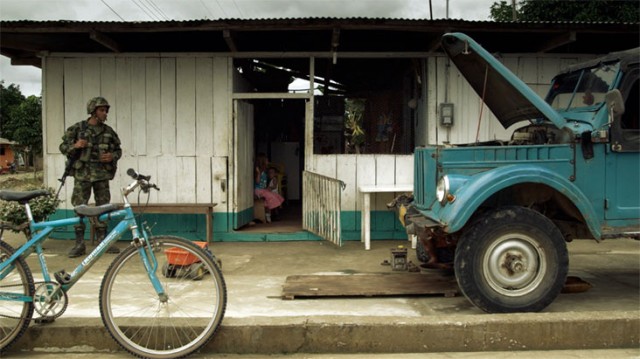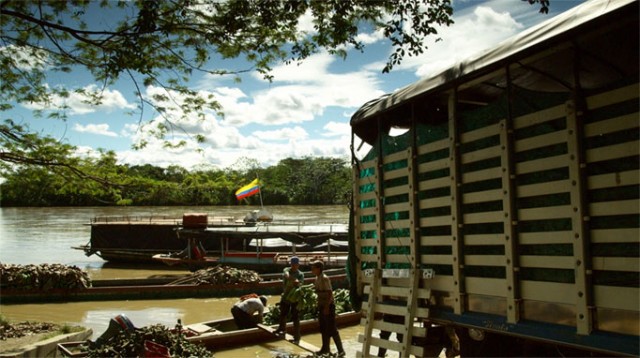Caleb McCarry (Washington, CC)
Em 2012, Creative Associates began talking about its pioneering work in Colombia. Keeping quiet about the Initial Governance Response Program helped ensure the credit redounded to Colombia’s authorities in defining a healthy relationship with the people of war-torn rural areas of La Macarena in Colombia’s Meta province.
The project proved that sustainable market-based approaches to extending legitimate governance in previously ungoverned spaces can lead to profound, positive changes.
Creative gained this opportunity through a competitive procurement managed by the Escritório de Iniciativas de Transição. Mas, where did the impetus for this watershed procurement come from?
The story is rooted in the give and take of our political process.

Turn the clock back to 1996. The new Republican majority in the House of Representatives was eager to press President Clinton on foreign policy. It was revealed that Colombian President Ernesto Samper had accepted campaign cash from drug traffickers. Em março 1, 1996, President Clinton decertified Colombia as an ally in the U.S. war on drugs.
Many in Congress thought Colombia was irretrievably becoming a “narco-state.” Questions of who “lost” Colombia began to emerge. International Relations Committee Chairman Benjamin Gilman and a Government Reform subcommittee chairman named Dennis Hastert believed it was possible to turn Colombia around.
The Colombian National Police—with help from the U.S. Government—had tracked down and killed über-narco Pablo Escobar. The Colombian Police had lost 5,000 officers killed and fired tens of thousands more for collaborating with drug traffickers.
The congressmen, moved by what the Colombian National Police did, wanted to help them. But they didn’t trust the Colombian Army which was linked to drug-trafficking “paramilitary” forces. The main guerrilla group, conhecido como o FARC, was also deeply involved in drug trafficking, ruling vast coca-producing rural areas.

The Colombian Police needed air mobility. The Republican-controlled House authorized 6 Black Hawk helicopters and upgrades for 50 Huey helicopters armed with .50 caliber machine guns for the Colombian National Police’s anti-drug operations.The Clinton Administration delivered this aid.
Em 1999, Colombia’s new President, Andres Pastrana—after exhausting efforts to negotiate peace with the FARC—engaged the Clinton Administration to develop Plan Colombia, an integrated anti-drug strategy to support the Colombian Military and Police.
Colombia’s human rights record became a real sticking point.
Democratic Senator Patrick Leahy insisted on restrictions aimed at rooting out human rights violators and collaboration with paramilitaries linked to unspeakable atrocities. Other Members of Congress, mainly Democrats, argued that the plan unbalanced to the “hard” side and pressed for “soft” side development aid. The final $1.3 billion package, negotiated by President Clinton and then-Speaker Dennis Hastert, included a small amount of “soft” aid.
Human rights restrictions spurred reform in the Colombian military. Depois 9/11, Congress lifted counter-drug restrictions, allowing U.S. aid to support counter-terrorism policy in Colombia.
Funcionou.
Colombians rejoiced when it again became safe to drive between cities. Presidente Alvaro Uribe wanted to extend government services to stabilize recently recaptured rural areas.
The wisdom of balancing military assistance with development aid came to the fore. USAID and the Office of Transition Initiatives was primed to help and stepped up with the Initial Governance Response Program.
President Jose Manuel Santos is now reinforcing Colombia’s consolidation strategy by expanding it to include a major effort to alleviate chronic poverty suffered by many Colombians.
Politics leads to policy which leads to development. They are inextricably linked.
Caleb McCarry is Director of Communications at Creative having previously served at the State Department during the Bush administration and on the professional staff of the House International Relations Committee.